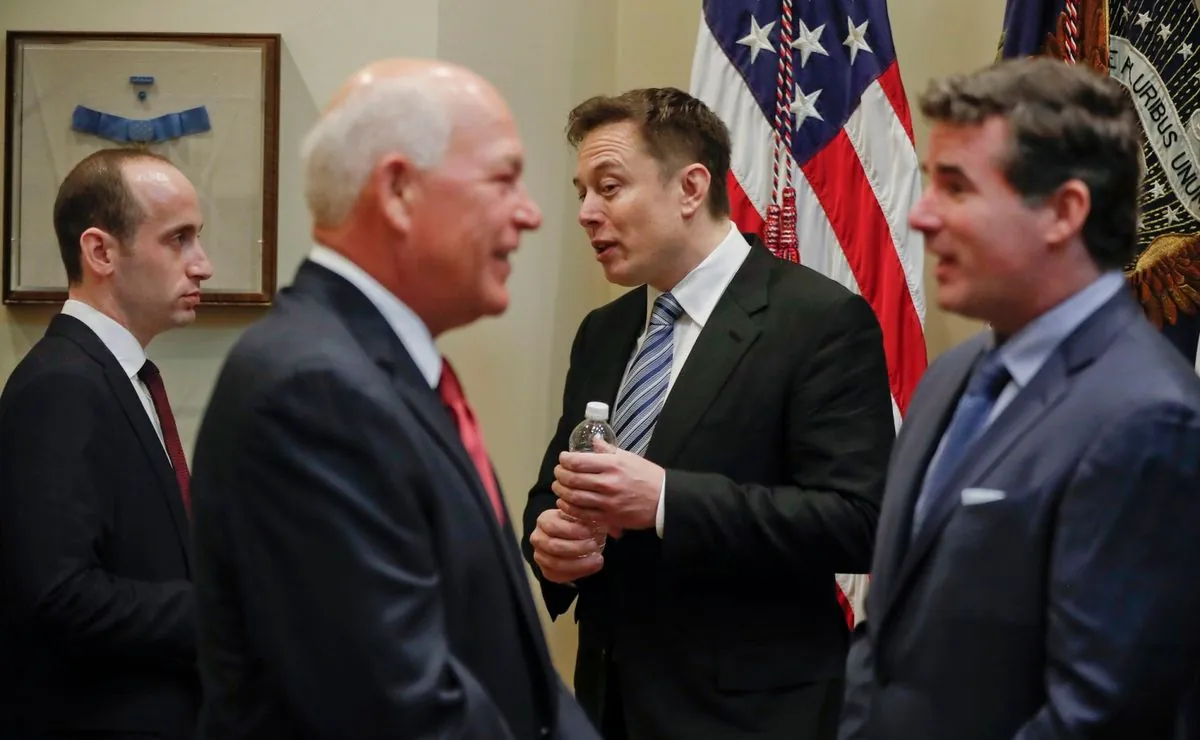In a recent development that has caught the attention of political observers, Donald Trump has formally endorsed a government spending commission that could potentially be led by Elon Musk. This announcement, made during a speech in New York, comes less than nine weeks before Election Day, highlighting the tightening alliance between the former president and the tech mogul.
The proposed commission aims to audit federal spending and regulations, with Trump claiming it could save "trillions of dollars." However, budget experts have expressed skepticism about the feasibility of such substantial cuts without significantly impacting federal services.
Elon Musk, known for his roles in Tesla, SpaceX, and as the owner of X (formerly Twitter), has shown interest in the commission. His potential involvement raises questions about conflicts of interest, given his companies' reliance on federal contracts and subsidies. Musk's businesses have received billions in government support over the years, with both Tesla and SpaceX benefiting from various contracts and tax breaks.
The alliance between Trump and Musk has been growing, with the tech entrepreneur endorsing the former president following an attempted assassination in Butler, Pennsylvania. Musk has also used his social media platform to support Trump, sometimes in controversial ways. Recently, he shared a manipulated image of Vice President Kamala Harris, which appeared to violate X's own policies on manipulated content.
This commission idea is not entirely new. The Reagan administration implemented a similar initiative called the Grace Commission in 1982. However, the current proposal comes at a time when the U.S. national debt has reached unprecedented levels, exceeding $31 trillion in October 2022.
Musk's potential role in the commission has drawn attention due to his recent rightward shift in politics and his occasional promotion of fringe theories. His companies' ongoing investigations by federal agencies under the Biden administration, including probes by the Justice Department and the Securities and Exchange Commission into Tesla's marketing practices, add another layer of complexity to the situation.
The proposed commission would likely need congressional approval for significant spending cuts, but regulatory changes could potentially be implemented unilaterally by a future Trump administration. This has raised concerns among critics about the concentration of power and the potential for conflicts of interest.
"No pay, no title, no recognition is needed."
As the political landscape continues to evolve, the alliance between Trump and Musk remains a topic of intense scrutiny. With Election Day approaching, the implications of this proposed commission and the growing ties between a major-party presidential nominee and an influential tech mogul will undoubtedly be a subject of ongoing debate and analysis.
